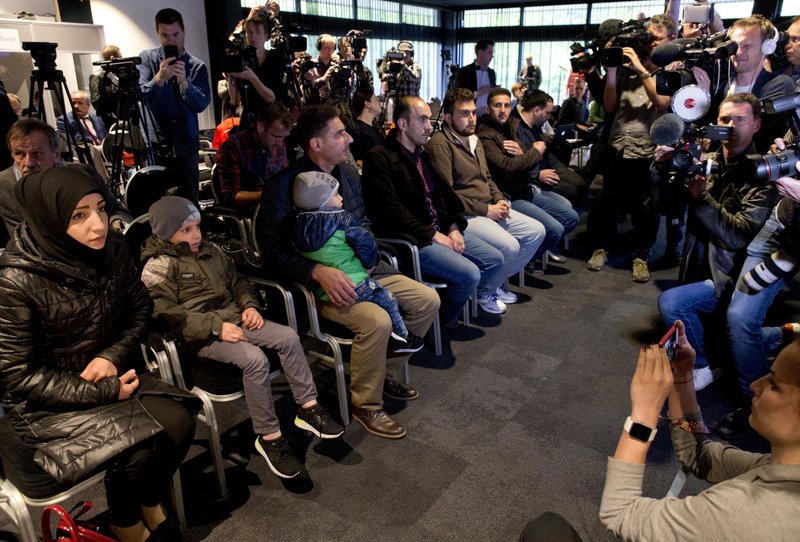BRUSSELS -- An initiative by the global chemical-weapons watchdog to apportion blame for poison gas and nerve agent attacks survived two institutional challenges from Russia on Tuesday and is set to become operational next year.
The U.S. and other Western powers at the Organization for the Prohibition of Chemical Weapons staved off a challenge by Russia and China to a June decision to set up an investigative team with the power to name perpetrators of chemical attacks.
It means a major change in the rules of the group, which has often been considered toothless because it couldn't pinpoint who was behind a chemical attack even if it proved the attack had happened.
After a heated session at the group's annual conference, members voted 82-30 to reject a reassessment of the June decision.
Russia and China had argued that the decision should be reviewed to ensure it didn't go beyond the mandate of the Organization for the Prohibition of Chemical Weapons.
Later, a Russian-Iranian move to reject the annual budget, which would have starved the new investigative team of funds, was also defeated.
In a Twitter message, British Ambassador Peter Wilson called it "an overwhelming result, which clearly says #NoToChemicalWeapons."
At the meeting, the U.S. ambassador to the watchdog, Kenneth Ward, complained Monday that "a tsunami of chemical weapons" had been used this year, especially in Syria, an ally of Russia. Ward called Moscow's attempts to undo the decision "pungent hypocrisy."
Britain and its allies have accused Russia of using a Soviet-era nerve agent in an attempted assassination of former spy Sergei Skripal and his daughter in the English city of Salisbury earlier this year. Russia denies the allegation.
In June, an 82-24 vote among the chemical-weapons watchdog's members provided more than the necessary two-thirds majority to give the group the mandate to name any parties it found responsible for chemical attacks.
The squad, expected to comprise about 10 to 12 investigators supported by experts and chemical inspectors who already work at the organization, will be able to look back at attacks for which blame was not apportioned.
One case still being investigated by weapons inspectors is the suspected chemical attack in April in the Syrian town of Douma. An interim report said weapons inspectors found "various chlorinated organic chemicals" at the site.
A Section on 11/21/2018
